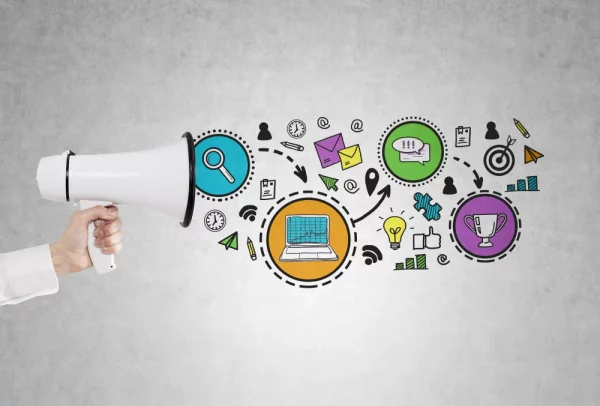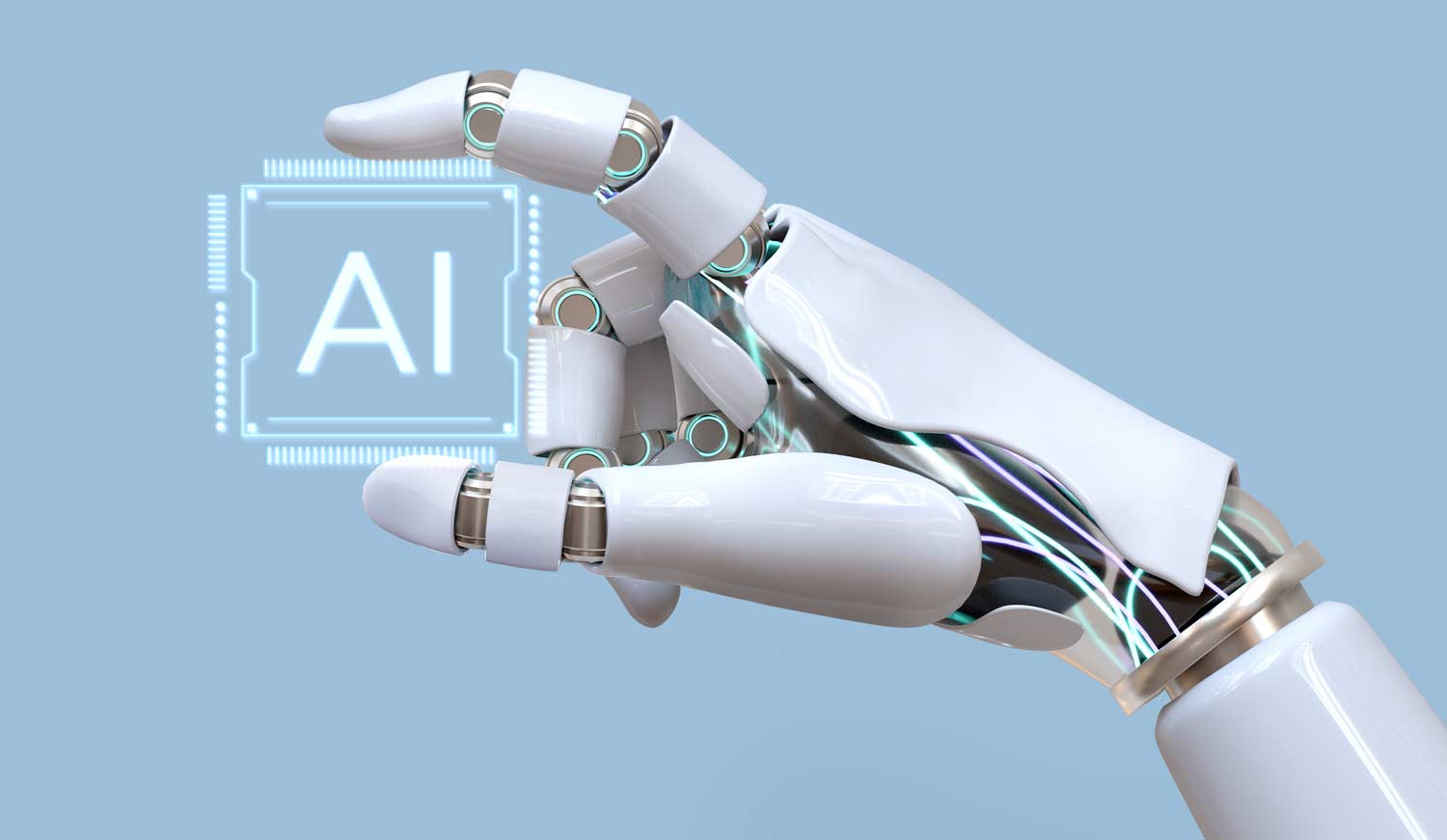
AI in Events: 25 Clever Strategies for Smarter Event Planning
As events become more complex, the use of artificial intelligence in events is growing fast. Indeed, AI in events can simplify and streamline the entire process from planning and promotion, to execution and analytics. If you want to make the most out of this new technology and aren't sure of how to leverage AI for events, wait no more. This comprehensive post details 25 smart ways to use AI in events and maximize their potential.
What is Artificial Intelligence?
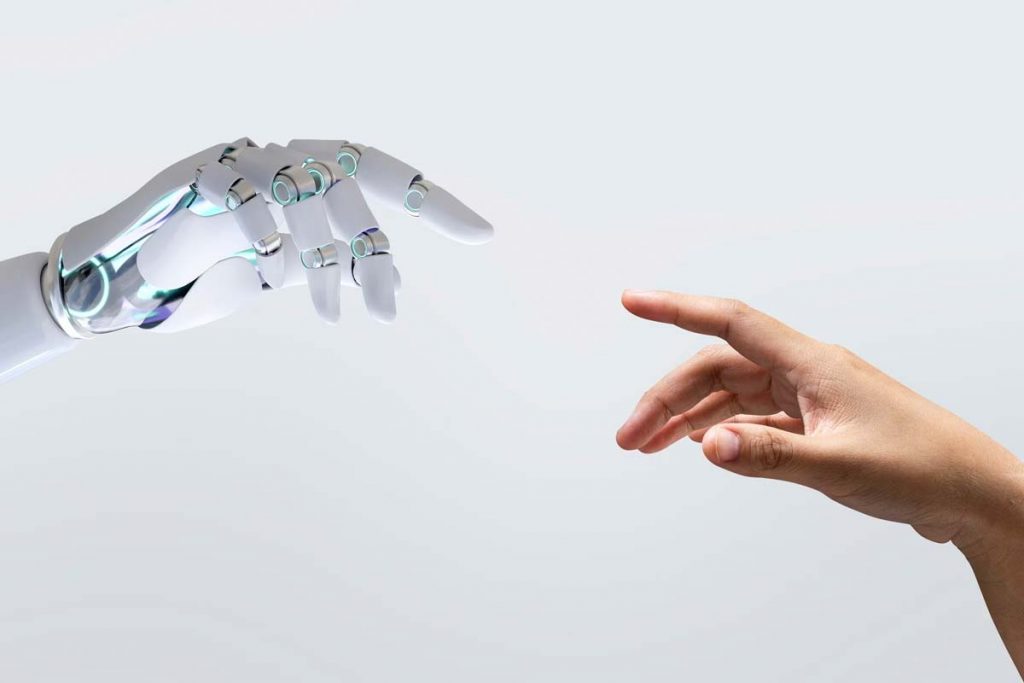
Artificial intelligence (AI) refers to the creation of machines and computer systems that are capable of performing tasks that typically require human intelligence, such as reasoning, problem-solving, decision making, and language comprehension. AI technology has advanced significantly in recent years and is now being integrated into a variety of industries and sectors, including event planning and management.
Overall, artificial intelligence technology has the potential to revolutionize the event planning and management industry by creating content and improving communication and engagement. Moreover, AI can help event planners by automating tasks and providing valuable insights into attendee behavior and preferences. Indeed, with artificial intelligence tools, it’s never been easier to plan and manage events!
As AI technology continues to advance, it will be exciting to see how it can further integrate into the events industry to create more efficient and engaging experiences for all. Check below some examples and use cases of artificial intelligence in events.
25 Smart Ways to Use Artificial Intelligence in Events
AI-based solutions are fast becoming a favourite among event planners and marketers due to their capability of streamlining monotonous operations, making templates for promoting events, and also offering insightful data. See below our curated list of 25 clever ways to use AI in events.
Event planning
1. Customized AI Event Suggestions
AI can analyze attendee data and provide personalized recommendations for events that are likely to be of interest to individual customers. Use AI-powered recommendation engines to suggest relevant sessions or speakers to attendees based on their preferences.
This can help increase customer engagement and attendance, as well as improve the overall event experience.
2. AI-Powered Event Scheduling
By analyzing data and patterns, AI can suggest the best times and dates for events, as well as the most efficient use of resources. Moreover, AI can optimize event scheduling by taking into account several factors. For example, attendee preferences, as well as speakers, vendors, and venue availability.
AI can definitely help event planners save time and money.
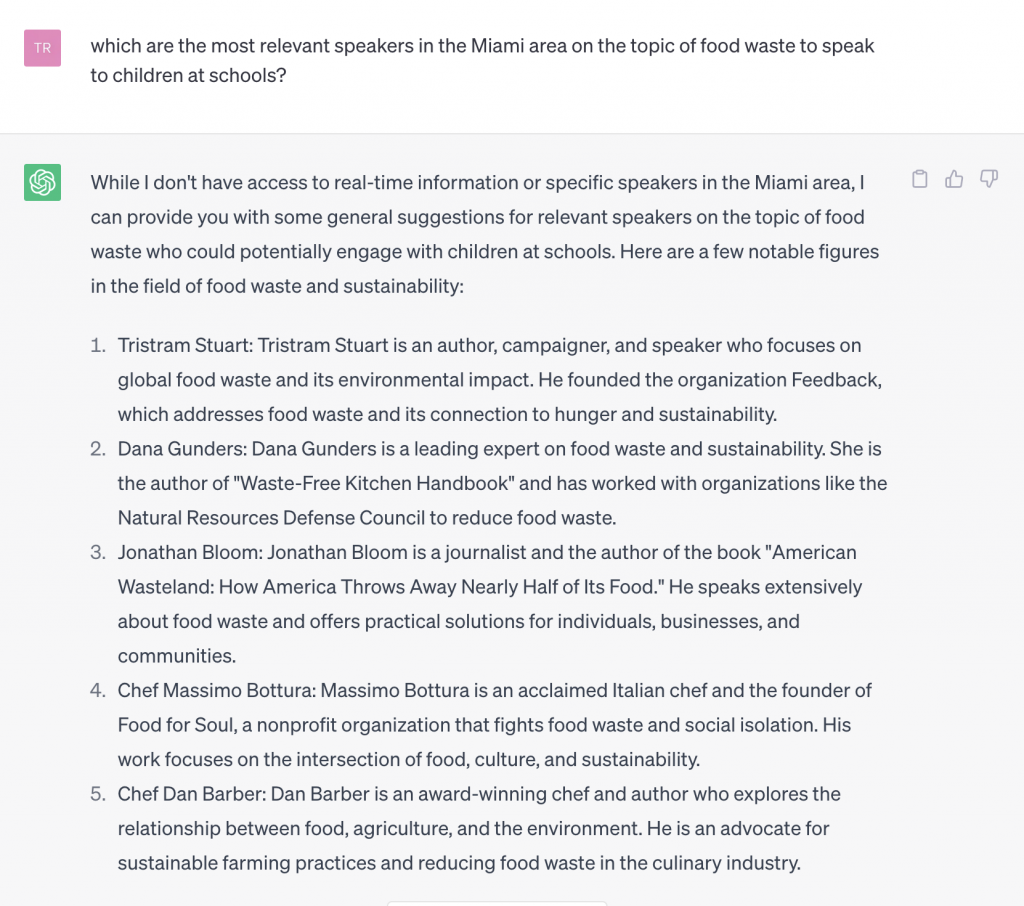
3. AI Custom Event Agendas
Event planners can use AI to generate streamlined event timetables through event data analysis, identifying scheduling conflicts, and optimizing the event agenda for maximum efficiency.
For example, with ChatGPT you are able to generate event timetables by uploading data from previous events and other relevant details specific to the event you are planning. This may include the event name, dates, location, and desired topics.
4. Engaging Speaker Bios & Introductions
Creating strong speaker bios and introductions is a critical aspect of event planning. It sets the tone for the session and engages visitors from the get-go. With AI, you can create solid speaker bios and introductions quickly and easily.
One of the benefits of using AI to create speaker bios is saving time. If a speaker hasn't sent a bio, you can use their LinkedIn profile to create one. AI can scour the profile for key details about their professional background, expertise, and accomplishments. This way, the bio presents their specific expertise and is appropriate for the conference or event.
In addition to creating bios, AI can also write speaker introductions. It uses their bio to craft an introduction speech with their most relevant achievements and why they're the best speaker for the topic. By including these details in the introduction, the audience can better connect with the speaker and their message.
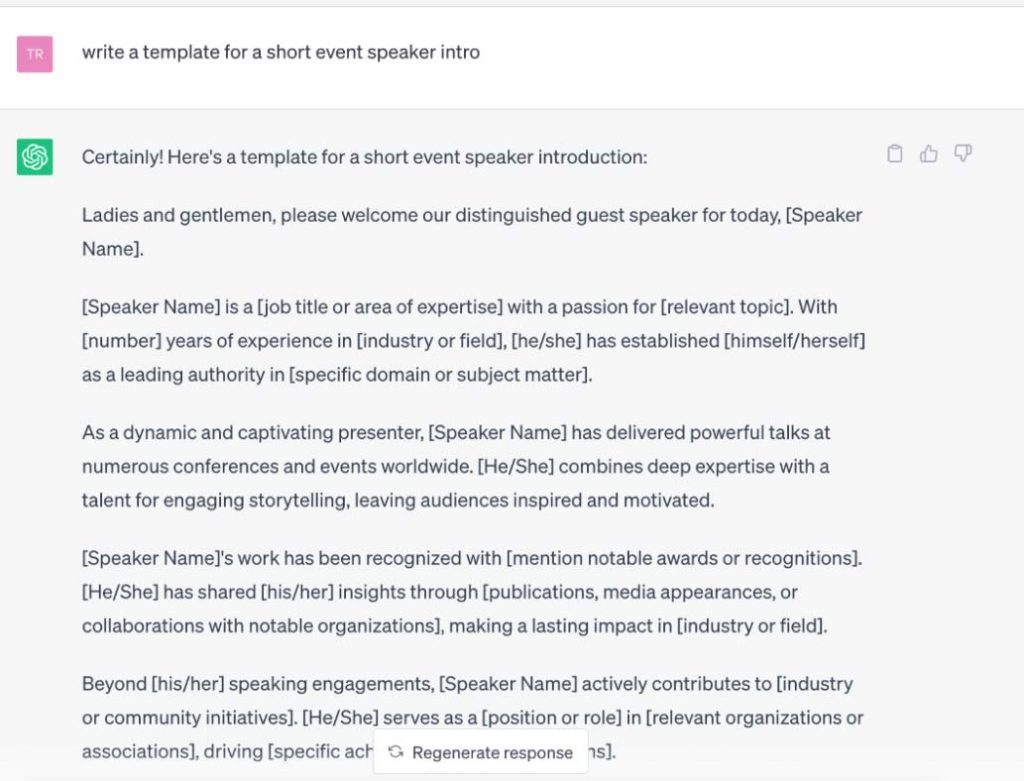
5. Simpler Breakdown of Responsibilities and Due Dates
With AI, event teams have the ability to automatically assign tasks and clearly document deliverables.
This ends any doubts about who is responsible for what, when it’s due, and who needs to be held accountable. It also helps keep everyone on the same page from the event's announcement until its conclusion. This not only saves you time in planning, but also ensures no detail is missed.
6. AI Creative Event Names and Logos
Event organizers can use AI tools to brainstorm event name and logo options.
AI can analyze event information, such as the event theme or the related industry, as well as its desired messaging and tone, and come up with some options. This can help create better event titles and logos that match the overall branding of the event.
To top it off, AI can then review user feedback to identify the most popular options. Thus, making sure the final choice speaks well to the target audience.
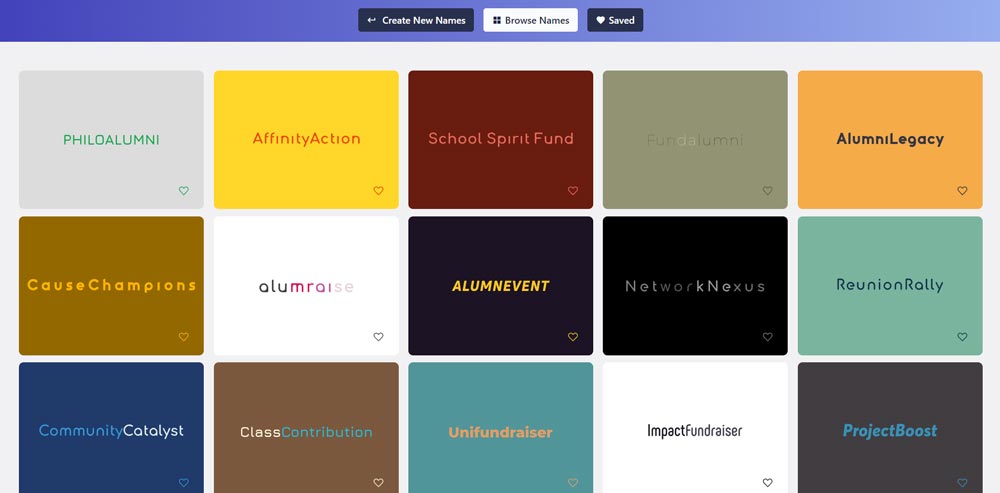
7. Engaging Event Headlines and Descriptions
Artificial intelligence tools can create strong headlines and descriptions, helping you promote events more efficiently.
By leveraging AI-powered natural language generation (NLG) technology, you can produce quality content with little effort. This allows you to quickly craft messages that will capture the attention of potential attendees and drive them to your event.
For example, Timely's AI Content Assistant tool not only enhances existing event descriptions but also creates them anew. This cutting-edge solution is crafted to completely transform the way event details are conveyed, ensuring not just improvement but also the seamless generation of engaging and captivating descriptions.
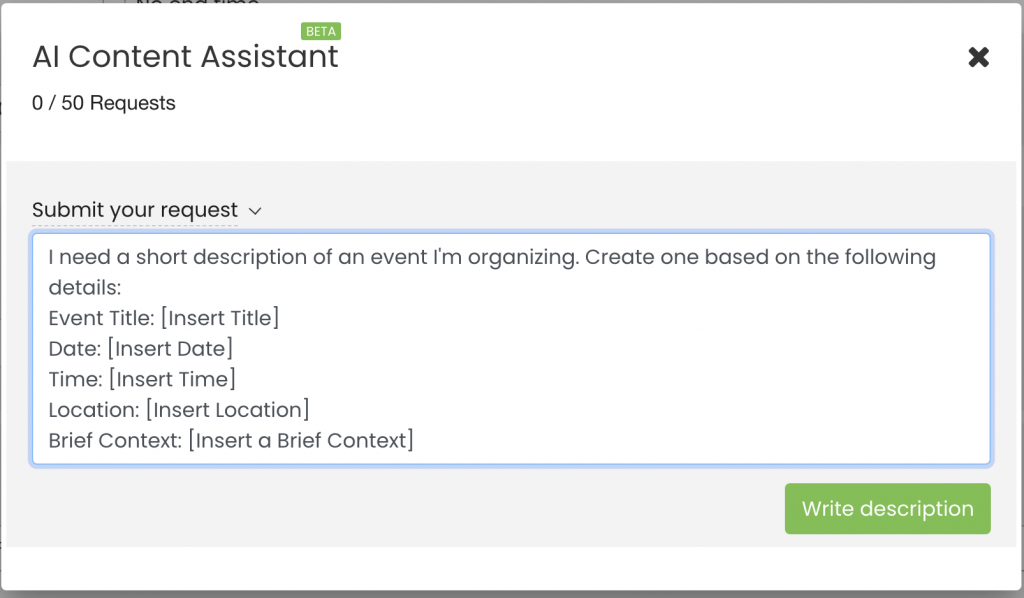
Say farewell to the mundane and embrace the extraordinary, as Timely's AI Content Assistant elevates your event narratives, making them more appealing and enticing for your audience. Now, organizers can invest their time wisely, focusing on the strategic aspects of event planning, while Timely handles the meticulous work of generating captivating event content.
8. Unique AI-Generated Event Images
Artificial intelligence tools can also generate images from textual descriptions. Event planners can use AI to create visuals of their event ideas, which can help them better communicate their vision to clients and vendors.
However, it's important to remember that AI is still a relatively new technology, and its outputs may not always be perfect. Event planners should use their own judgment and expertise to determine whether the generated images accurately represent their vision for the event.
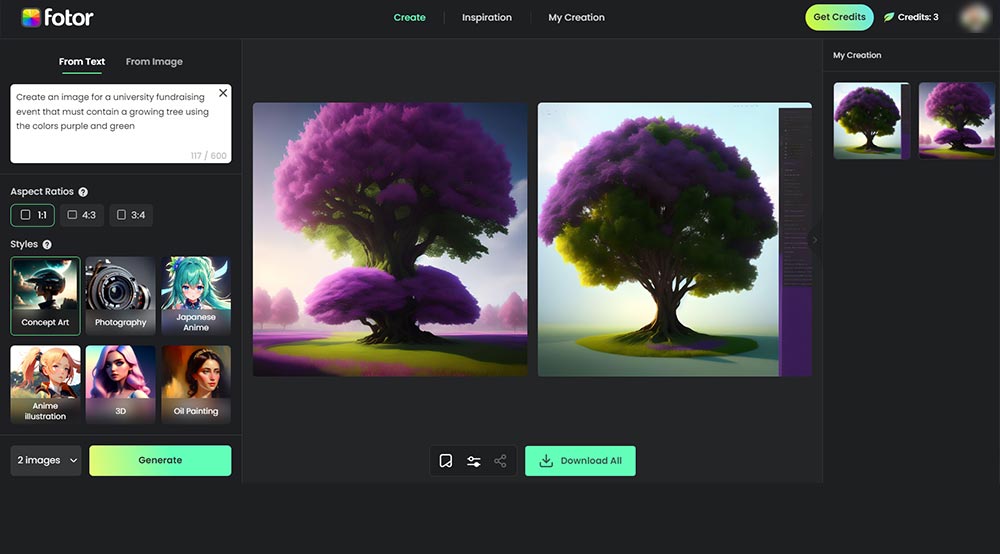
9. AI Video Prompts and Teasers for Events
Event planners can use AI to easily create strong video scripts for teasers and promos. AI can review the event information, such as type, theme, name and description, and make a video script that is specific to the event and its audience.
Some AI tools can even turn script text into real videos without the need for cameras, actors or video editing. You just need to pick your avatar and language, and then add your text. AI will make videos based on your choices.
10. Translated Content Reaching a Bigger Audience
AI is also capable of quickly translating event content into different languages to reach a larger audience. This is helpful for corporate meetings, webinars, conferences, and other events where there may be several attendees from different countries who speak different languages.
With quick content translation enabled by artificial intelligence in events, everyone will be able to understand what the event is about without the need for translators or interpreters.
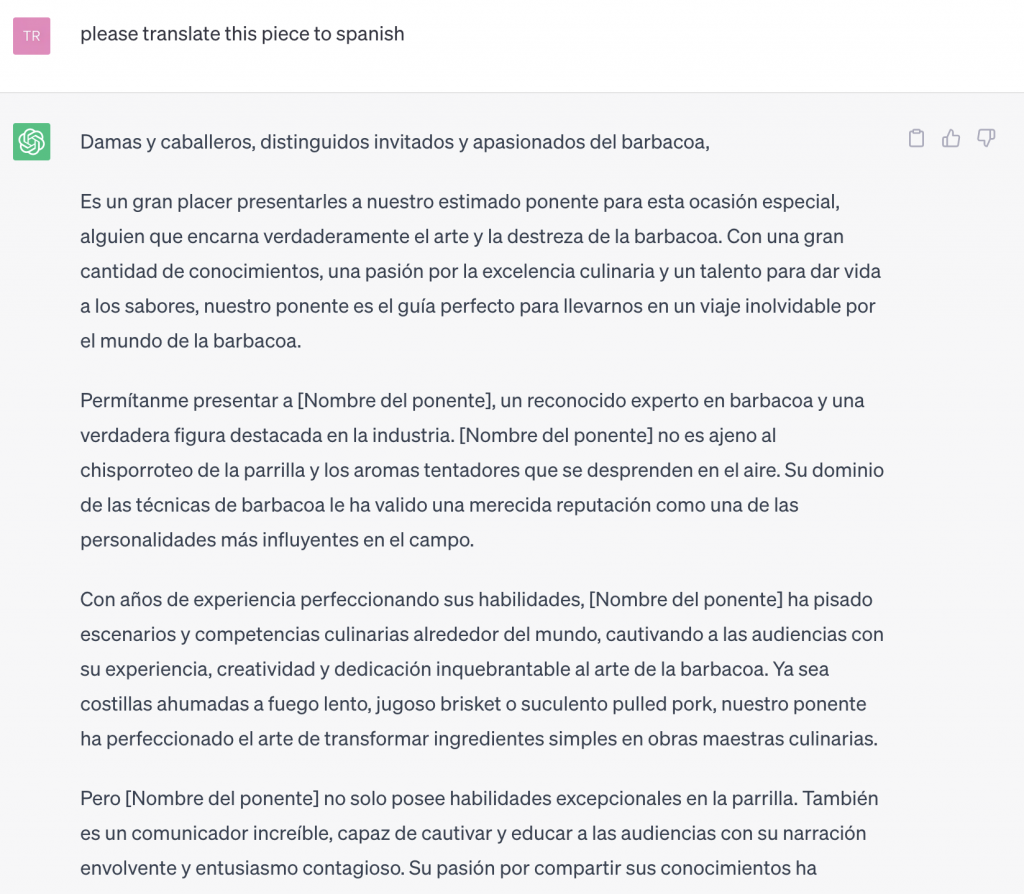
11. Well-Written Sponsorship & Partnership Decks
One of the most critical components of any successful event is securing the right sponsorships and partnerships. But crafting well-written and persuasive decks can be a time-consuming and challenging process for event planners. Fortunately, AI in events has emerged as a game-changing tool that can help streamline this process and deliver exceptional results.
By leveraging artificial intelligence in events, event planners can create sponsorship and partnership decks that are not only persuasive but also show the value and benefits of working with their brand. AI can analyze and interpret vast amounts of data, enabling it to develop ideas for the deck’s overall structure and content, so it aligns with the event's objectives.
Furthermore, AI-generated writing can provide an added advantage in making decks more engaging and captivating for potential sponsors and partners. By analyzing data on the target audience, market trends, and brand positioning, AI can produce descriptions that resonate with potential partners, highlighting how they will benefit from the collaboration.
12. Original AI-Generated Music
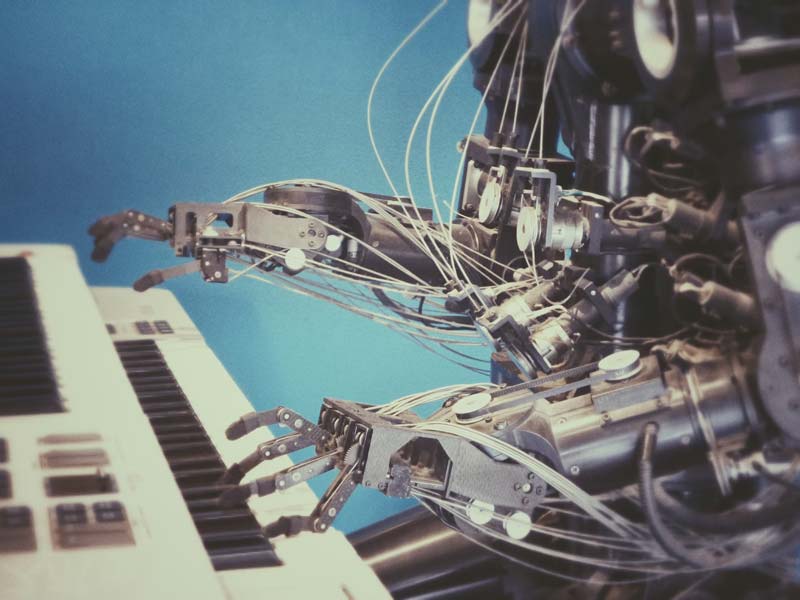
One exciting way to utilize AI in events is to create original AI-generated music. Imagine having a unique soundtrack for your event that sets the tone and mood perfectly. With Artificial Intelligence in Events, this is possible.
Using AI music-generating tools, you can easily create original music that perfectly suits your event's atmosphere. Simply input your preferences and the AI software does the rest. Whether you're looking for a classic, soothing tune or something more upbeat and modern, AI tools can produce it.
With AI in events, you can create customized playlists that enhance the overall experience of your event. It's also an excellent way to showcase your brand's personality by creating a distinct musical identity. Finally, having a unique, original soundtrack is sure to leave a lasting impression on your attendees.
Event promotion
13. Efficient Promotional Event Emails
Artificial intelligence tools can also help with email marketing, targeting selected groups that will be at the event.
It is a great helper in creating outside the box content for invitations, registrations and event reminders. It is also able to tailor the communication style to your event's target audience, therefore engaging and connecting further with your public.
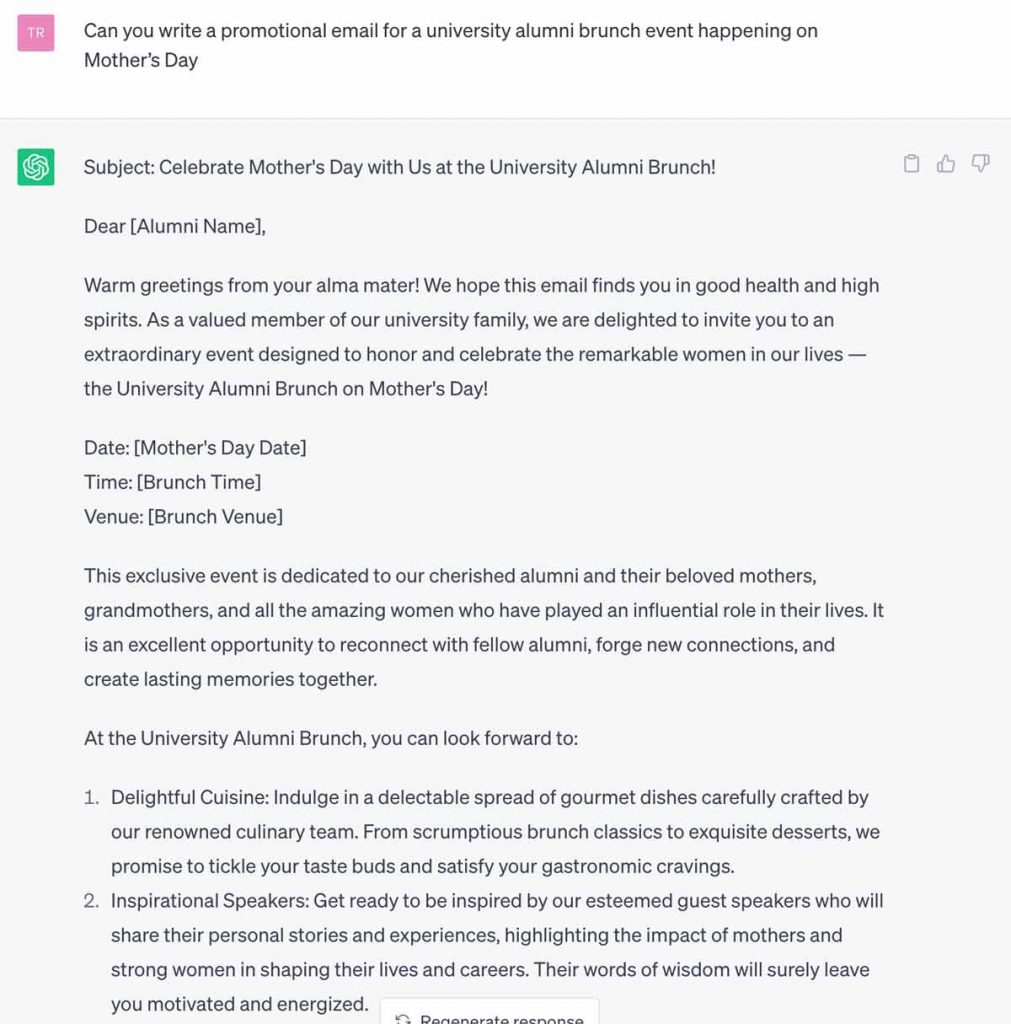
14. Social Media Content for Event Promotion
By leveraging the power of AI, event planners can create social media content that is more engaging, visually appealing, and personalized. Consequently, higher engagement and conversion rates.
For example, AI can generate social media optimized event images and videos. Indeed, AI can analyze user behaviour and preferences to generate images and videos that are more likely to be shared and engaged with by users. Also, AI can identify trending hashtags and keywords related to the event.
15. AI Generated PR Content
AI can make press releases for events by analyzing event details and generating written content that is specific to the event and its audience.
Event planners can also use artificial intelligence tools to analyze press releases from similar events to generate content that is consistent with industry standards.
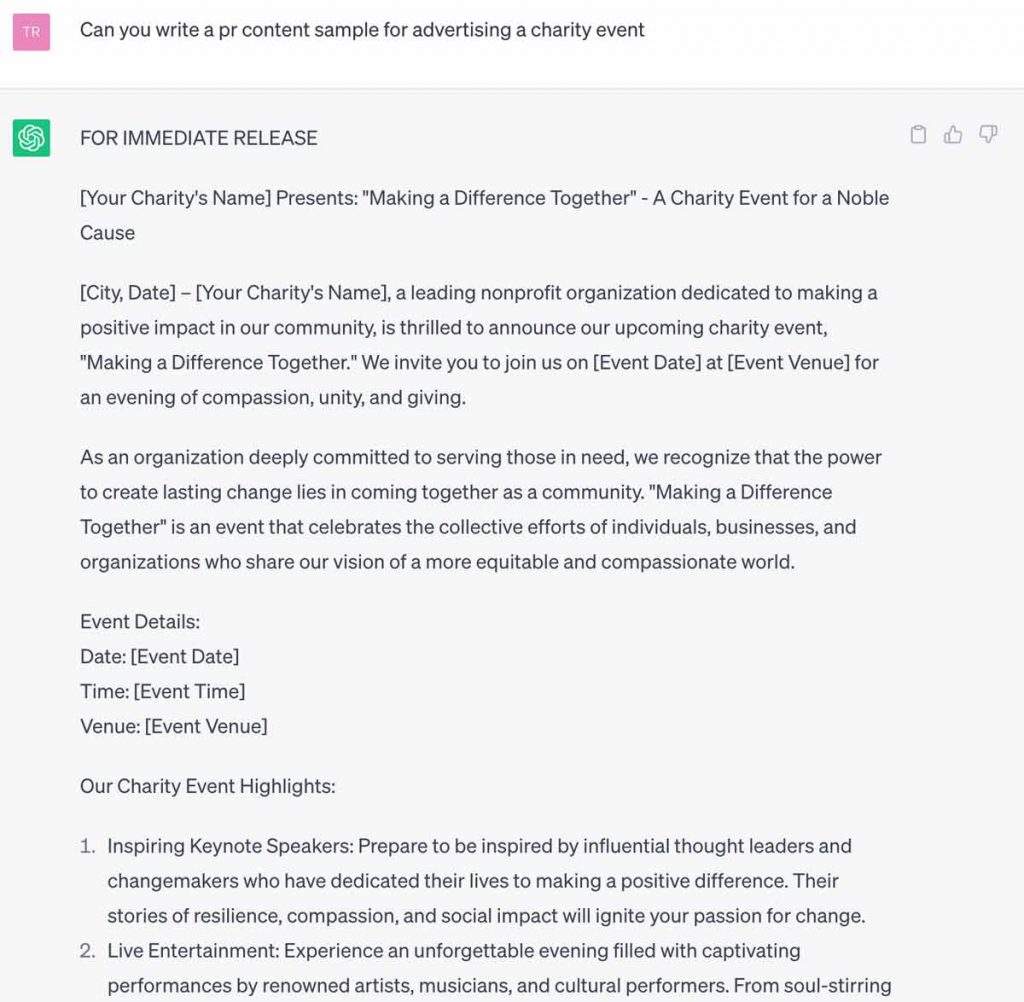
16. Smart Lead Generation
Event planners can generate event leads by leveraging AI data analysis, machine learning, and predictive modelling techniques.
AI can analyze large datasets of consumer behaviour, social media activity, and other online interactions. In that way, it can identify potential leads for events. By mining data from various sources, AI can identify who is likely to be interested in attending specific events.
Event registration
17. Event Registration and Landing Page Creation
AI can be used to analyze data, such as the event’s purpose, descriptions and speaker bios. It can also create content for registration and landing pages.
As explained above, event creators can also use AI tools to generate headlines, subheadings, and other content elements to make the page more engaging and beautiful.
18. Increased Sales
AI can use machine learning algorithms to analyze past sales data and predict which events are likely to drive the most sales.
By targeting marketing efforts towards these events, event organizers can increase sales and improve ROI. Moreover, by using machine learning algorithms to analyze sales data and market trends, event planners can adjust pricing strategies to increase online ticketing sales and improve profits.
Event operations
19. Chatbots for Customer Service
One of the most popular uses of AI in events is through chatbots. These virtual assistants can be programmed to answer common questions, provide information about the event schedule and location, and even help attendees register or purchase tickets.
Chatbots can be added to event websites, social media platforms, and messaging apps to provide 24/7 customer service and support. They can also gather data on attendee preferences and behaviour, which can be used to improve future events.
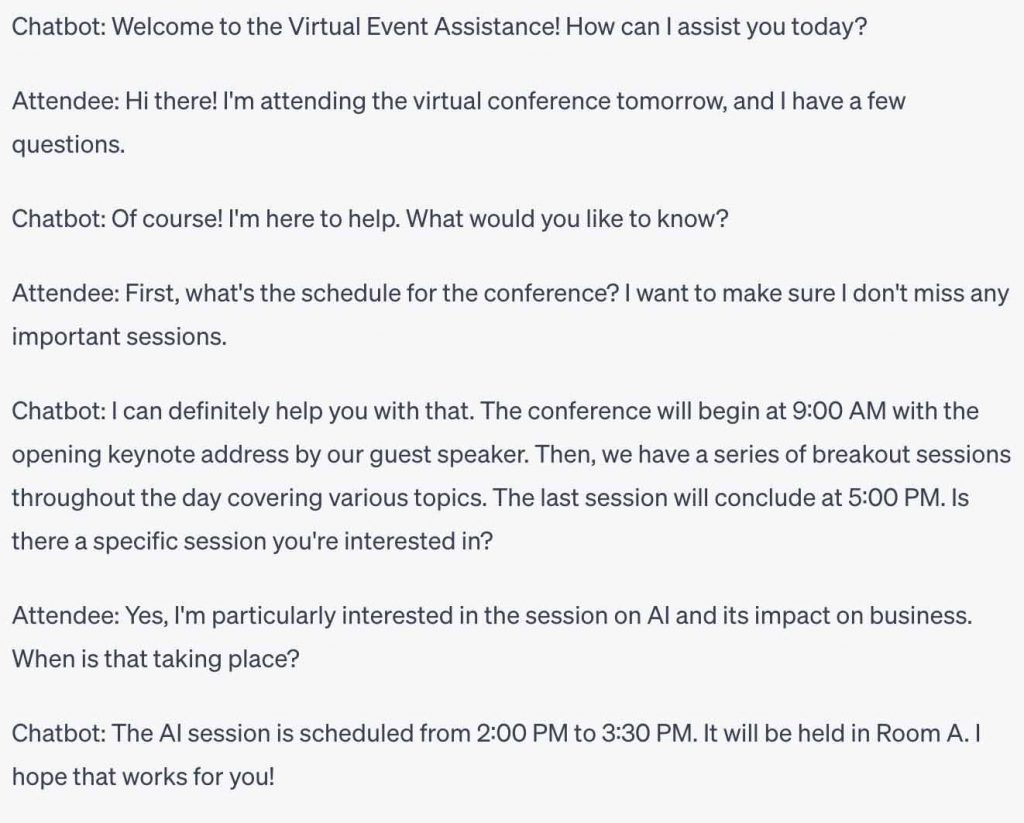
20. Facial Recognition for Check-in and Security
One innovative way to add AI into events is through facial recognition technology. This can be used for check-in and security purposes, allowing attendees to quickly and easily enter the event without the need for physical tickets or ID. Facial recognition can also be used to monitor the event for security purposes, identifying any potential threats or barred individuals.
It is clear that this type of AI technology can simplify the check-in process and enhance the overall security of the event. However, it is important to consider privacy concerns and ensure that attendees are aware of the use of facial recognition.
21. Personalized Attendee Experiences
AI can help create unique experiences for visitors by using data such as their interests, likes, and behaviour.
This can be done through chatbots that interact with attendees and gather information, or through facial recognition technology that can identify attendees and provide personalized recommendations or greetings. Personalized experiences can lead to higher attendee satisfaction and engagement, and ultimately, a more successful event.
22. Custom Questions for Event Moderators
When it comes to putting together successful events, moderators play a crucial role in ensuring that panel discussions and interviews run smoothly. To achieve this, they must be skilled at formulating well-crafted questions that keep the discussion flowing and engage the audience. This is where AI in events comes in handy.
AI tools ca generate custom questions that relate to the specific topic and theme of an event. By using AI, moderators can save valuable time that would have otherwise been spent brainstorming questions. Instead, they can rely on the technology to provide relevant, thought-provoking questions that drive the conversation forward.
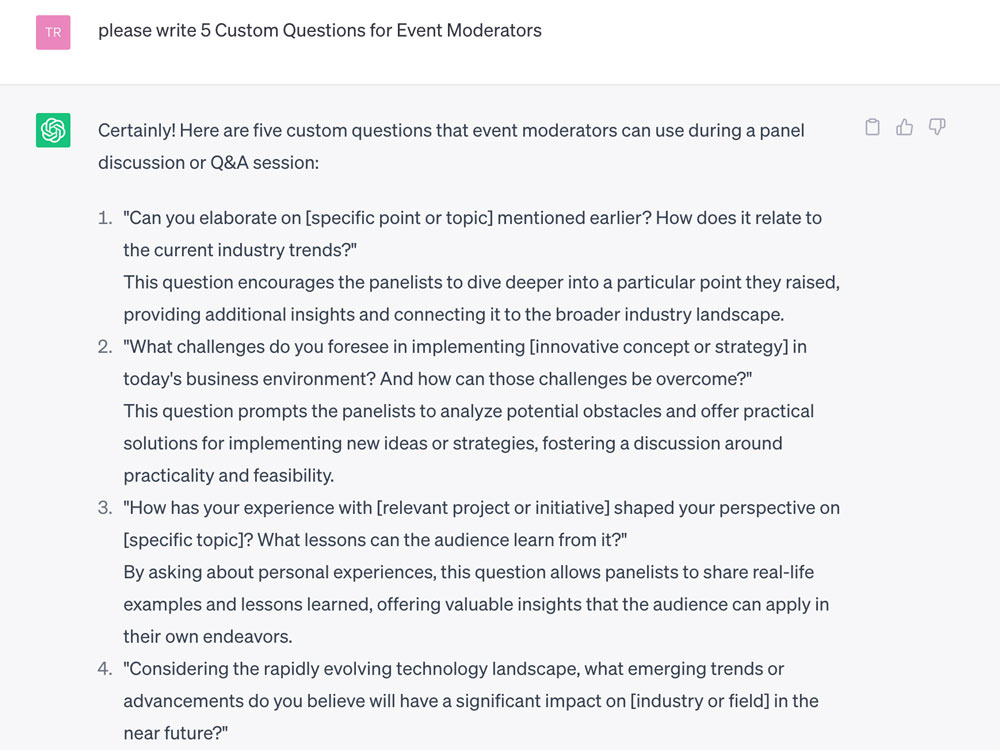
23. Post-Event Attendee Engagement
With the help of AI, post-event attendee communications can be custom and effective. AI can analyze attendee behaviour and preferences, and use that information to tailor follow-up messages and offers. This creates a better experience and enhances the overall value of the event.
Additionally, using AI to generate a list of questions for a survey makes it easier to gather feedback from conference attendees. The survey can evaluate the overall conference experience, including the quality of presentations, speakers, and networking opportunities. Furthermore, with AI, you can analyze responses and summarize them to find patterns and trends in the data. Finally, this will provide valuable insights that can be used to improve future events.
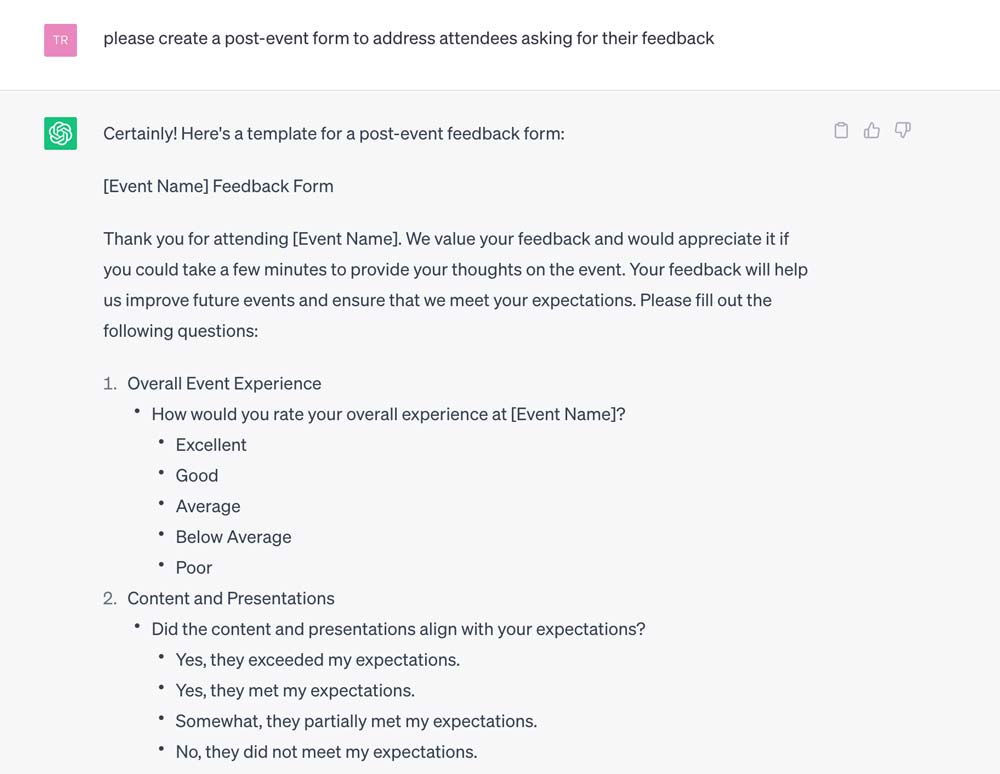
Event analytics
24. Summaries for Post-Event Reports
When it comes to hosting events, creating detailed and comprehensive post-event reports is essential. These reports help you evaluate the success of your event, identify areas for improvement, and gather valuable feedback from attendees and partners. Fortunately, with the help of AI in events, creating these reports can be made easier and more efficient.
Firstly, artificial intelligence in events can help by providing a general template or framework for the report, which can include key elements such as event purpose and goals, leads and sales generated, attendance rate, and feedback from participants. Secondly, AI algorithms can quickly analyze all this data and generate easy summaries with key takeaways from the event.
Lastly, one of the benefits of using AI in events to create post-event summaries is that it saves a considerable amount of time and effort. Since manually compiling and organizing all the data can be a time-consuming task, especially for larger events. AI can do this quickly, accurately, and efficiently, allowing you to focus on other areas of the event.
25. Predictive Analytics for Event Planning
A great way to use AI in events is through predictive analytics. By analyzing data from previous events, AI can help event organizers predict attendance numbers, identify popular sessions or activities, and even forecast revenue.
This information can be used to make informed decisions about event logistics, such as venue size and layout, catering needs, and marketing strategies. Predictive analytics can also help event planners identify potential issues before they arise, allowing for proactive solutions and a smoother event experience for attendees.
Next Steps: Start Leveraging AI in Events Now!
As you can see, artificial intelligence in events can provide a wide range of benefits for event hosts and organizers. By using these new tools, you can simplify your event management processes, improve attendee experience, and boost your event's overall success.
From chatbots to recommendation engines and facial recognition technology, the possibilities are endless when using AI tools for events. So why not start exploring the benefits of AI for your next event today?
Join Timely and Streamline Your Event Management
At Timely, we are always looking to innovate and provide the greatest event management software and services to our customers. Talk to one of our experts, and find out how Timely can help you manage events more efficiently.
Table of Contents

Event Management Updates
If you want to know more Timely company and product update news, please visit our Event Management Blog. There is always something new happening at Timely, so we do our best to keep our clients on the loop!
You might also like


